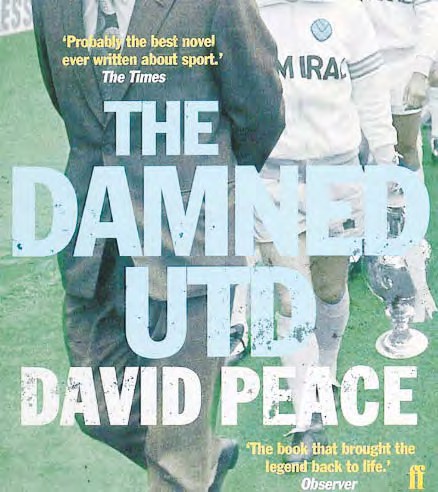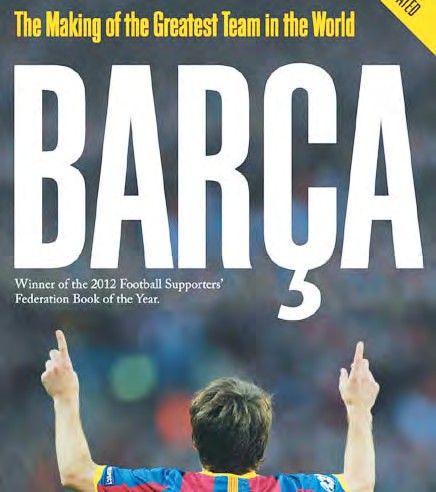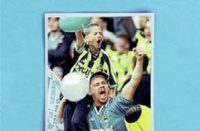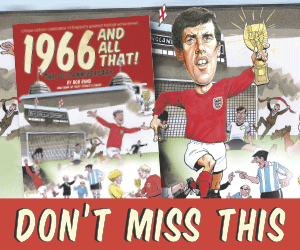RAMON BENITEZ tackles football reads – and recommends five of the best for the beach this close season

AFTER Wayne Rooney got embroiled in an online argument with a ‘fan’, Sir Alex Ferguson said Twitter was “a waste of time” and “I don’t know why anybody can be bothered with that kind of stuff. There are a million other things you can do in your life without that. Get yourself down the library and read a book. Seriously.”
Ferguson’s love of learning through reading is well-known and was underlined following the announcement of his retirement -former Prime Minister Gordon Brown once sent Fergie several heavyset books on – mostly American – history to alleviate the aeroplane boredom when travelling to European ties. But, I digress.
English sportswriters, unlike their American counterparts across the Atlantic who are – rightfully – respected, aren’t treated with reverence. I mean, not for nothing did newspaper editor’s infamously refer to the sports pages as the ‘toy department’.
And Brian Glanville, the doyen of football writing, has always found it difficult to be taken seriously as a novelist because he wrote about the beautiful game. However, the emergence of works by people like David Conn, Jim White and Jonathan Wilson has earned this particular genre deserved credibility and – overdue – applause.
Football becoming big business has meant a burgeoning book market. Even Roy Keane’s dog Triggs has had her – satirical and surprisingly readable – life story sold.
The American satirist Ambrose Bierce once wrote a review consisting of a single sentence: “The covers of this book are too far apart,” and this fits perfectly to many a footballers’ autobiography, most of which are seasonal scrapbooks.
Some court ridicule and contempt (think -Ashley Cole’s infamous “almost crashed my car” quote after Arsenal would only offer him £55,000 per week). Others like Louis Saha’s are admirably blunt: “When my wife has her period it’s chaos in the house.” And the rest just attract aggro. Keano’s admission of intent to harm Alf-Inge Haaland earned the Munsterman a £150,000 fine and five-game ban.
Still, Keane’s book is Ireland’s second biggest seller after the bible. The confessional tome Full Time: The Secret Life of Tony Cascarino is arguably the genre’s finest feat. ‘‘Compared with the standard-issue footballer’s autobiography, this is Tolstoy,’’ a glowing review by The Guardian enthused.
Wayne Rooney absurdly had an autobiography out at 20. When a veteran Stanley Matthews (by now knighted and a genuine living legend) mentioned to his authoritarian old man that he was thinking of writing a book, his father (a former boxer) sneered something along the lines of, “wait until you actually achieve something, son.” The explosion and pervasiveness of modern technology, and the platform and freedoms it provides, has enabled amateur authors to also tell their tales.
A good example is Will Tidey’s Life With Sir Alex: A Fan’s Story of Ferguson’s 25 Years at Manchester United. But most are nihilistic stories of sin and redemption which appeal to the dark side of the soul. Diary of the Soul Crew. Casuals: Football, Fighting and Fashion. Congratulations, You Have Just Met the ICF. And Awaydays et al: the list is long and nglorious.
The commercialisation and globalisation of the game has caused more – and I’d wager better – books about foreign football (eg Brilliant Orange: The Neurotic Genius of Dutch Football and La Roja: A Journey Through Spanish Football) becoming readily available and more being written (like Inverting the Pyramid: A History of Football Tactics) which forensically examine and theorise the game.
Meantime, the Sky Sports (formerly the Rothmans) Football Yearbook remains the bible of football facts. And Hunter Davies’ The Glory Game is still unsurpassed as an enlightening exercise in looking behind-thescenes at a professional football club.
Nick Hornby, author of the critically acclaimed Fever Pitch, wrote that there’s a list maker in all us men. So here’s a top five (some old and some new) to keep you sane over this football-less summer:
Barca-The Making of the Greatest Team in the World
Is there anywhere more appropriate to begin than a book about the most fêted and influential football club of the last decade? The authoritative Graham Hunter, an exiled Aberdonian and regular face on Sky Sports, has immersed himself within Catalan culture; making his exhaustive endeavour read like a love letter equivalent in adoration to any Caravaggio altarpiece.
This is the One: Sir Alex Ferguson: The Uncut Story of a Football Genius
There are innumerable books available about arguably British football’s most fascinating and complex character. Ferguson himself has a second one on the go (and now more time to finish it). Authentic and observational, engaging and revealing (so much so, that it subsequently got the author Daniel Taylor banned from Fergie’s Carrington press conferences), This is the One documents two contrasting seasons in the extraordinary life of the Scottish knight and mighty Manchester United.


The Damned United
On its publication, The Independent’s Gordon Burn said, ‘‘if the English novel still needs the kick up the pants that everybody insists it does, then now, with the arrival of The Damned United, is time to consider it wholeheartedly kicked.’’ David Peace’s fantastically profane prose bites into the paper, and the smell of scotch and cigarettes drip from the page. Blasphemous yet beautiful. Buy this book.
You, ll Win Nothing With Kids: Fathers, Sons and Football
Stanley Kubrick, talking about Arthur Schnitzler’s erotic and psychological short novella Dream Story, said: ‘‘… a difficult book to describe – what good book isn’t?’’ And the mysterious filmmaker’s maxim applies perfectly to You’ll Win Nothing With Kids. Thought-provoking and delicate. Hilarious and enlightening. Often poignant. And always personal.
The Outsider: A History of the Goalkeeper
‘‘Trying to rationalise why such unfair things happen to such undeserving people,’’ is the existentialism eternally endured by goalkeepers (who the wonderful Jonathan Wilson writes, ‘‘tend to be reflective types, prone to introversion’’). And like an accomplished curator, the wellread author (he’s obviously painstakingly shifted through mountainous stacks of source material) theorises with Freudian acumen this quandary which perpetually torments these fantastically captivating characters.


















